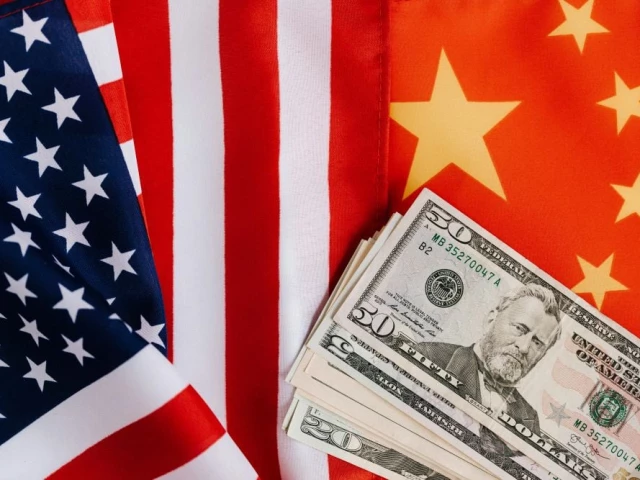China raises tariffs on US imports to 84% in response to Trump's policies
US-China trade hits new low as 2024 exports hit $143.5b, imports $438.9b amid escalating tariff battle.

China has escalated its trade dispute with the United States by raising tariffs on American goods to over 80%, in a direct response to a fresh wave of US levies announced by President Donald Trump’s administration.
Effective April 10, tariffs on US imports into China will rise from 34% to 84%, Beijing confirmed on Wednesday. The move comes just hours after Washington implemented a dramatic increase in duties on Chinese goods, lifting the total tariff rate to 104% in some cases.
The tit-for-tat escalation marks a new low in the trade relationship between the world’s two largest economies. According to the Office of the US Trade Representative, the United States exported $143.5 billion worth of goods to China in 2024, while importing Chinese products valued at $438.9 billion.
President Trump unveiled his sweeping new tariff policy last week, warning other nations not to retaliate. While some countries, including Japan, have signaled a willingness to negotiate, China has taken a more defiant stance, quickly countering with its own tariff hike.
US Treasury Secretary Scott Bessent criticised Beijing’s approach on Wednesday, telling Fox Business: “It’s unfortunate that the Chinese actually don’t want to come and negotiate, because they are the worst offenders in the international trading system. They have the most imbalanced economy in the history of the modern world, and I can tell you that this escalation is a loser for them.”
The renewed trade hostilities follow China’s initial response to Washington’s April 2 tariff rollout. In retaliation, President Trump announced a further 50% tariff increase, pushing total duties on Chinese imports above the 100% mark.
The Trump administration had already begun tightening trade measures at the start of the president’s second term, targeting China, Canada, and Mexico as part of efforts to curb the flow of fentanyl into the US.
Global markets have reacted sharply to the escalating tensions. The S&P 500 closed Tuesday nearly 20% below its recent peak, officially entering bear market territory. South Korea’s Kospi Index followed suit on Wednesday, while major stock indices in Shanghai and Hong Kong have also posted significant declines since the April 2 announcement.
Analysts warn that the ongoing trade conflict could weigh heavily on global growth, stoke inflation, and reduce corporate earnings, raising fresh concerns among investors and policy makers worldwide.

1724219889-0/BeFunky-collage]_____-(32)1724219889-0-100x90.webp)





















COMMENTS
Comments are moderated and generally will be posted if they are on-topic and not abusive.
For more information, please see our Comments FAQ